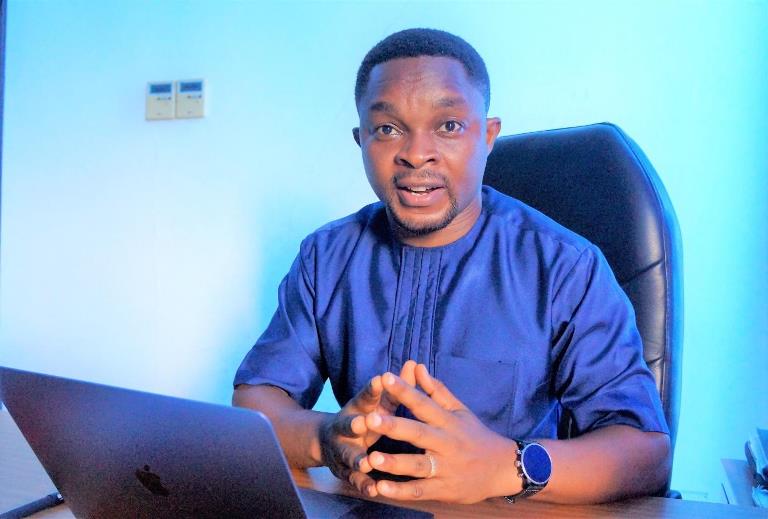Hanson Johnson, the founder of Start Innovation Hub, one of the foremost incubation Centre in Niger Delta region of the county speaks of challenges that the incubation hub face, the need to prepare for the 4th industrial revolution through capacity building and how the government is responding to IT as a form of mass employment program.
Tell me why Start Innovation Hub is located in Uyo and not Lagos, what prompted you?
It is basically because of the challenges I faced then, most of the ICT opportunities were in Lagos. For us to get any IT skillset or solution we always headed to Lagos. This was a big challenge and we wanted to change that narrative and bridge the gap, which was the reason we used the word start. Start Innovation Hub was established to address this challenge and bring IT closer to people while developing indigenous IT capacity in Akwa Ibom State and Niger Delta as a whole. We want to contribute our own quota in the diversification of the Niger Delta economy from that of crude oil-based to IT. Though when we started, folks around never believed in us, today we are 5 years old and still growing. As of then, it was scary to start, but we thank God that after 5 years we can look back that we started.
When you were starting, what were the teething challenges you faced as a new Incubation Centre?
It was supported when we started people didn’t believe in us because it is just a new concept. Considering Akwa Ibom as a state, we are looking at oil economy with Eket playing the dominant role. Now, when some group of young guys came to town with this idea that they want to start an information technology hub, trust me many didn’t believe in us and many didn’t give us a chance but more importantly is skills, access to talents was a challenge, access to broadband, fast internet and electricity is still a huge challenge till date.
As you are trying to change the narrative to move Akwa Ibom State from Oil to Tech hub what was government intervention?
Well, there is Akwa Ibom State Youth Development Fund (AKYDF) Bill on the desk of His Excellency the Governor of Akwa Ibom State. Until he signs and starts implementing them I am yet to feel the love. We believe that Akwa Ibom State government would one day come to terms that crude oil just like coal would one day go, as we are moving into the 4th industrial revolution.
The government is trying its best. Whatever we are experiencing is a result of the best they could offer. We haven’t had any serious engagement with the government in the area of partnerships, collaborations and even intervention. We are very open to this engagement be it at the state or federal level but we haven’t had any. Those in government too should understand the role innovation hubs play in the digital economy.
Over these years, you have developed a partnership with firms like Google, Facebook etc. tell us about DevFest Uyo?
GDG DevFests are community-led developer events hosted by Google Developer Groups around the globe. GDGs are focused on community building and learning about Google technologies. DevFest always has key speakers coming from various walks of life. It is a big event and happens globally and DevFest Uyo has always been one of the biggest in Africa and we are happy to be part of this. We have been organizing DevFest every year in Uyo for many years and the spotlight is on us. We’ve had international guests and participants, people travel by road from the North, East and many places to Uyo for GDG DevFest. We are putting Akwa Ibom State in the global IT map.
 When you look at capacity building and skill set, what do you think that the Nigerian government can do to reduce the consumption of foreign IT products?
When you look at capacity building and skill set, what do you think that the Nigerian government can do to reduce the consumption of foreign IT products?
The government should patronise indigenous solutions to their problems. One of the reasons we started the hub was to help develop local talents and make them available for global relevance. We have serious challenges here, the requirement to procure for the government does not favour startups. Policies like having hundreds of millions of billions with 3 years audited accounts, Pension etc etc. Most startups can’t qualify for such but the person that qualified will further outsource that project to a startup to implement. The government has to play down on these policies.
Project Create and other things such as Startup women are what you have been doing to intervene in dearth of skills in Nigeria. How has it been?
In 2016, we launched project CREATE to help local talents innovate for global relevance. It is a job guaranteed ICT training for software developers, designers and digital marketers. We have graduated about 4 sets and we have them working in various companies and countries. We have been the implementation partners of PIND Foundation on their Niger Delta Youths Employment Pathways (NDYEP) Program since 2018.
You had collaborations with Google, Facebook and others?
I am the country mentor for GDGs (Google Developer Groups), and also as of Last year, Facebook made us one of their hub partners in Nigeria. GDGs have been of huge help to us in developing critical IT skills and also the Facebook partner program gave us access to immense opportunities and made us key facilitators in digital marketing, coding and other startup programs. With us, many people do not need to go to Lagos to access these things. We have brought IT very closer to the people.
Tell us your success stories these past 5 years of your establishment?
Ours is a simple thing, in the past 5 years we focused on talent development because we discovered that it is a problem here, we focused on skills development. We try to develop these skills and expose them to opportunities. We have developed skills that we have them outsourced to companies in Nigeria and foreign countries such as the United Kingdom, Romania etc. between last year and this year, we have trained over one hundred and fifty-five people and we have committed them to internship and paid jobs. We are currently training 112 on project CREATE. These are the things we have achieved. And also we have built internally an app called Jiggle which is solving meal budgeting problems for people in Nigeria. Jiggle is doing well in the market since it went on production.
Your 5th Anniversary collaborated with the unveiling of your mobile app – Jiggle. Can we know how this app has can affect lives in a positive manner, especially the youths?
It is always a problem when you are out of cash while school is in session. It affects your academic performance so Jiggle has arrived to help you feed well even when you are out of cash. We developed Jiggle and this app is a budget app that helps people plan their meals. It is basically a budget app and we have been developing this internally. We incorporate an eWallet into it and with this, you can pay with Jiggle instead of paying cash.
Your kid’s program has been successful. Tell us how this works?
Kids Code club is a long holiday program that is 4 weeks intensive. We teach these kids coding, game animation and others. This is taken over by Starthub women as Makers Club Holiday Program and this has been running for the past 2 years now. Our women’s arm known as StartHub Women is a program that is focused on championing the visibility of women in entrepreneurship and leadership using technology. They are the ones running the Makers Club Holiday program and the feedback we have been getting lately has been encouraging.
As a youth and a stakeholder, what advice do you have for the startup ecosystem?
The advice I have is that they should solve problems and their solutions should compel people to pay for such services. That is my advice to startups and to government, I would say that the army of youths that are available but not doing anything can be harnessed. They have been using them to win elections, but they must understand that this growing army of youths is a time bomb waiting to explode if not properly handled. The government must, as a matter of fact, work with incubation hubs in the country; collaborate with them to address this challenge.




